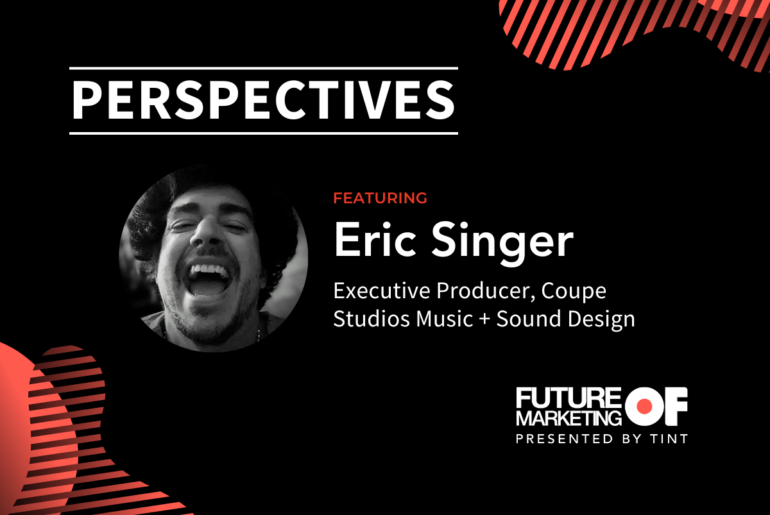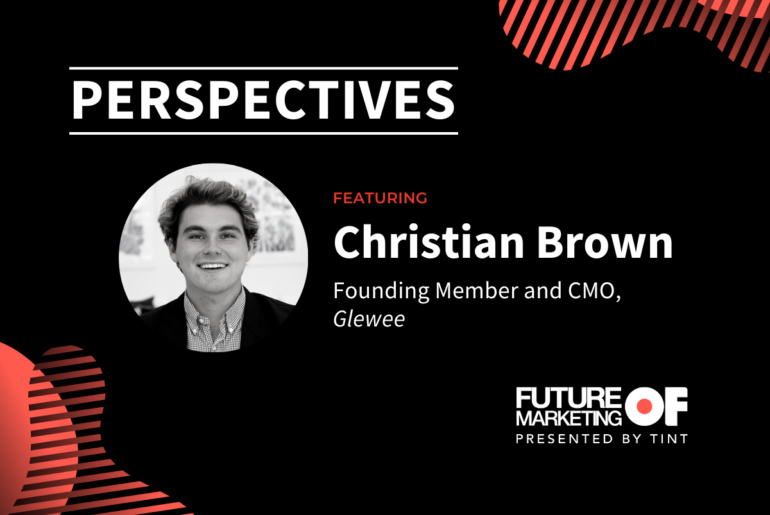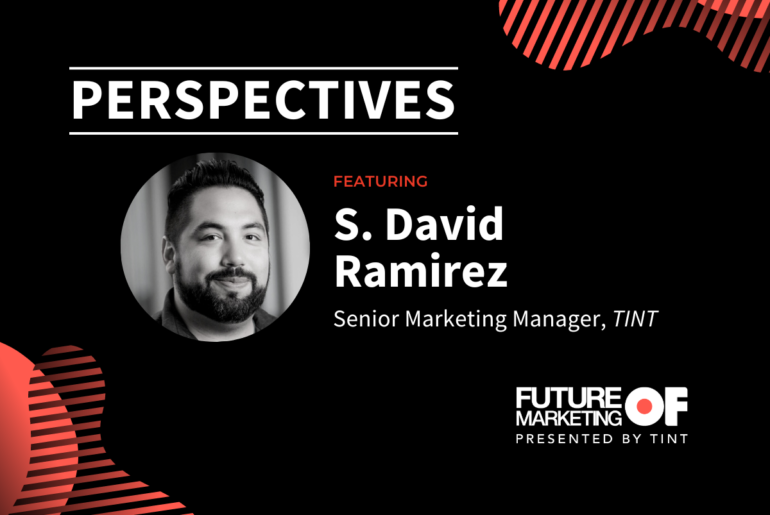Perspectives is a series uncovering routines, inspiration, and insights by marketing leaders shaping the future around the globe.
EDITOR’S NOTE: Katia Diamante is Digital Marketing Coordinator at Palenque Group. She is passionate about self-care, authenticity, and elevating the voice of your biggest fans.
In her words, Katia shares her perspective on:
- The importance of community engagement
- Why UGC is so valuable
- Impostor syndrome in marketing
And more…
What do you do for a living? What does your typical day look like?
Most of my day is going back and forth with marketing agencies – making sure that all of our plans are being coordinated. Another chunk of my day is creating strategy, looking at results, and interacting with other people on Twitter, Facebook, or Instagram through the brand.
And then also, on my own personal Twitter, in case there are questions or anything new that’s coming up – just to keep a tab on things, how everything’s going. It’s really important to keep a pulse on everything, especially when you work in social because things change so quickly, and there could be breaking news that could affect your brand.
As far as engaging on social media, is there an approval process that you have to go through? Or how does that get strategized?
Thankfully, I have the privilege to decide for myself – like what is appropriate for the brand voice and what isn’t – which is very, very liberating.
It’s been a great thing to have on our end, especially channel to channel because things change so quickly.
And when you’re interacting with somebody, you’re not going to interact with them the same way that you would on Twitter, like on Facebook, or on Instagram the same way you would do it on Facebook or Twitter.
Being able to tailor these without a huge approval process is really great because that means you’re responding to people faster, and you’re getting them help or making them feel welcome in your community much faster as well.
What blogs, sites, sources do you follow for marketing news and insights?
Twitter is a really good resource. For example, Alexa Heinrich.
She’s amazing for anything accessibility. She’s great. I’ve learned so much just from her tweets and her accessibility checklist that I would not have learned anywhere else.
I’m also a marketing student at Southern New Hampshire and I love that all of my textbooks are recent, and they’re good reference points.
Specifically, in my position, we use a lot of analytics, which are super important. You always need to know that your strategy is working – and data-driven strategy is the best.
But it really depends on what kind of strategy you’re building because if you’re trying to build a community and generate more user-generated content, it’s much better to build engagement over reach.
Why do you think engagement is important?
At the end of the day, social media is about building community.
If your brand is building a steady community where you can constantly interact with your audience (Wendy’s does this well) – and able to build more – more people will see your promotions because they already interact with the brand.
And building a community through engagement.
But there are both sides of the coin because realistically, your audience and employees can build engagement with your brand. But if you’re not responding, there’s a disconnect, and you’re losing half of a conversation that you could be building upon. And that’s so helpful later – if you’re launching a new product, a loyalty program, or anything like that, you’ve got to do the work first for it to be successful.
You’re not spending so much money (just on paid social where you could have built a brand already).
Of course, you’re still going to have to spend money at some point, but you’re not going to spend as much if you have that community already.
What is something interesting or surprising you learned in the last few months?
I’ve learned how resilient people are. Because I feel like before 2020, the people who work behind brands have to be strong because of how crazy the job can be, how insane our hours can be, and how difficult it can be.
[As marketers], you’re not customer-facing the same way as a grocery store worker or somebody who’s working at Starbucks as a Barista – but you have such a larger audience…
If you ever mess up, it’s out there in front of the world.
I’ve learned how great the #MarketingTwitter community is because we’re all supportive. We’re all watching out for each other, learning from each other, and we’re so open to teaching others.
What should everyone in the social marketing space STOP/START doing?
I think brands need to stop thinking that their followers are not going to understand something – that they need to spoon-feed it to them.
A recent example, Burger King.
Like we know you’re what you’re trying to do. We see that you’re really trying to grab attention. But there is something to be said for grabbing attention the correct way and not thinking, “because it’s shocking, it’s going to work.”
We’re way past that.
You don’t want to be like, “everything was going so well until we tweeted that. And then it was a madhouse, and we never recovered.”
That’s the worst to say. So just don’t do it. If it’s unsavory, it’s better to ask other people on your team.
Why do you think UGC is so valuable for brands?
It’s valuable for a few reasons:
Content
UGC is perfect content because not only is it relatable, real, and engaging, it’s also fun and shouts out your followers/customers! Also, it helps with the load of constantly creating content that is appealing and entertaining. That can be a heavy load at times! UGC makes it easier to bear.
Feedback
With UGC, you’re not just getting content, you’re also getting feedback from your customers. You’ll get to see what they like, how they like it, what their creations are, and who they share it with. It’s the magic of being able to talk to your customer without asking them to fill out a survey.
Targeting Evolution
Another thing I love about UGC and find valuable is how your targeting can evolve. You can find more targets that you may not have even thought of with UGC, just by the content that people submit. Do people who love your brand also love a competitor you never thought was a competitor? With UGC (and a little sleuthing), now you know and can target accordingly!
Something I do is keep a library (with permission from the person who posted it, of course) of UGC and then pull from there when it’s needed. It really helps enrich your feed and build a more authentic experience, which has translated to a more genuine community who follow you for you!
What’s a common belief in marketing that you disagree with?
The idea that you can repurpose your content for every social media platform without tweaking it a little bit.
I feel like that’s been something that’s really popular for some reason, especially on TikTok. I’ve seen a few saying, “I’m a social media manager and I think you should use the same content for all of your social media channels. And you can create a strategy in 15 minutes.”
First of all, 15 minutes is nowhere near enough time to create a strategy.
Yes, repurposing your content can be useful, especially if you have a blog that you want to promote – but I can’t understand how somebody would want to put the same thing on Instagram and Twitter.
That’s something I had to work on with brands that I’ve used or worked with in the past, where the strategy is the same throughout every single channel (and it shouldn’t be). It should be tailored, but not the same. Every channel has a different audience.
There may be a different type of person who’s constantly using Facebook (we know they skew older), and younger people tend to use TikTok or Instagram. The research is there.
What do you feel most marketers struggle with? How can we fix this?
I think a good part of it is imposter syndrome.
I’ve seen this specifically among my female co-workers, people in my cohort, and other marketers that I’ve met (through social media, a conference, or through a mutual friend) that we all struggle with the same level of imposter syndrome. This also goes to the men out there.
I struggle with this a lot. I feel like there are so many good marketers out there.
How am I going to be able to either make a difference or just get through the day, and make a good strategy to make sure that it works?
I know, in my head, yes, I can create a good strategy. But when it comes time to present it, I’m like, wait, what if this is all in my head? And this is gonna flop?
I think a good part of it is thinking, “Hey, if this strategy flops, now you’ll know what to do for the next time, you’ll know how to tweak it.”
And it’s very difficult to talk to somebody else because you think, I don’t want them to see that I’m not as good as I think that as they think I am, which isn’t the case at all. We’re all struggling with [impostor syndrome] at some point.
And I think part of it is like having a community to be able to tell you, “you’re actually doing really well.”
This is all in your head, you need to breathe, or if you need a little extra boost, know that people will be there for you (your co-workers, family, or even #MarketingTwitter).
What changes in your industry are you seeing?
I definitely think curbside is here to stay. I hope that it is here to stay for those days where I’m tired and don’t want to see anybody. I’m okay with picking up my food curbside, interacting quickly, and going back home… because everybody gets those days where you want to stay home.
I also really like that so many places have apps now, where you can order delivery directly from brands. Chick-Fil-A has a great app, where they will literally deliver to you – directly without you having to go through Uber Eats or Postmates, which I love anyway. But I love that I can order and get it straight home without any delays.
I really hope to-go alcohol is here to stay, too. That is life-changing.
Especially kits for whenever you’re having a large gathering. I would have killed to have good chips and dip kit from anywhere. Now you can just order it.
What does the future of marketing look like to you? How can brands and teams prepare?
I think there’s going to be more emphasis on diversity, inclusion, and authenticity. The strategies are going to be more about how real your brand is, and how honest it is because so many people know your tactics (I know what you’re trying to get me to do).
Because of that, it’s going to be harder for marketers to convince someone to buy a product, try something out, or leave a review – and by association, it’s going to be a little bit more difficult to get good UGC.
If you built a good community around you, then your authentic, real self and real brand will shine, and it won’t be that difficult to create UGC for you – but if you haven’t, you’re going to have a steep hill to climb.
I also think that another thing that goes hand in hand with this is being more accessible to people. Hopefully, it’ll be more important because I have worked with brands in the past where it’s been difficult to get them to jump on the alt text train or on the caption-your-video content train because they’ll say:
“It’s difficult”
“I don’t know how to do it”
“There’s no real way to know that this is working”
Those are all excuses for something that should be done anyway.
I’m one of those people that uses captions a lot. I would rather consume my content with a caption because I don’t always grasp what someone’s saying right away.
I’m so glad more brands are doing this now because it’s made it so much easier to consume content.
What is a book, podcast, person, or event that helped shape your career? Why?
Mine is personal.
I used to work at a property management company called Linden Management. They are a very small company – there’s only a handful of properties. It was my first-ever marketing job, where I was a marketing manager (as well as a community manager).
I also oversaw a property, and it was under renovation. It was so much fun, but I ended up leaving there to go into marketing.
I feel like the biggest thing that really helped shape my career was the fact that somebody gave me a chance.
I needed experience I didn’t have – I didn’t have a degree in marketing, I didn’t have any certifications at the time.
I owe a huge debt of gratitude to my then-boss, Bianca (who is no longer with the company), because without her giving me a chance, I probably wouldn’t be sitting here at all.
She saw that I had good ideas, that I could really help, and all the strategies that I have been pushing through were really good.
She said, “You are really good at this. You should really consider this. Go into this if you don’t want to stay in property management.”
I really appreciate her for that because it’s not every day that your boss tells you that, you know?
At that point, I hadn’t thought about what it’d be like to go into marketing, and now it’s like, wow, I really, really love this. And I wish somebody had told me that earlier because I had this perception of marketing that it was always sell, sell, sell. And now on this side, it’s just so much more human than that.
Who, where, or what do you look to for inspiration?
Inspiration is everywhere.
I feel like the more you consume content created by other people you admire, the more you feel inspired. But I also feel like this is a two-pronged answer because you need to be able to take care of yourself in order to feel inspired.
So, I feel like you can find inspiration everywhere, but you also have to remember to take a step back and take care of yourself first so that you can be completely inspired by what you find.
What advice do you have for marketers and creatives who look up to you?
Two different things I’ve learned that I feel are really good pieces of advice are… one: never stop learning.
There’s so much out there that you can learn from. If a webinar is slightly interesting, sign up for it. Take a gander at it. Let’s see what it’s about. And if it’s not interesting, at least you learned something. And if it is interesting, hey, that’s great.
Another thing is, it can’t be overstated how important self-care is, especially with social media managers. It’s so important – because like I mentioned before, you really are customer-facing, which means that when people are angry, they’re angry. And social media gives you that barrier where you’re not really looking at them face to face, so they may be a little bit angrier with you than they normally would be.
And I think that it’s really important to have a self-care routine.
It doesn’t have to be used just when somebody is mad at you and only for that purpose. But whenever you’re stressed out, or a strategy doesn’t go well, or now you’re expected to recreate it for like 50 other things – and you start to feel that little like oh no or like you’re falling a little behind – just take a moment to breathe…
How do you wind down from a long day of work?
I like to start by breathing deeply for about a minute.
I find that that is probably the most helpful part of just being able to wind down especially after a very stressful day. And then I find something that I like to do.
I have a self-care box that I have face masks in, bath bombs, adult coloring books. I have regular books in there as well. And I’ll just go through it if I’m having a really, really stressful day and say, Okay, what do I need today? Do I need to just take a bath and put on a face mask and listen to music? Or do I need to watch a movie? Do I need to draw or color for a little bit?
Especially after a stressful day, that really helps.
But most days, I basically just leave my office, which is like, a good 10 steps from my living room. And I’ll just go sit there and watch my cats roam around and play, or I’ll just mess with the laser with them. And that is really good at de-stressing me.
What are you excited about or looking forward to?
I’ve thought about going out and visiting my best friend in Minnesota and just taking a little bit of time going back to self-care – just seeing people that I want to see that haven’t seen in a long time.
And being able to go out and talk at a restaurant without freaking out that you’re gonna catch something. There’s going to be less anxiety about actually going out and doing things that you normally don’t…
I love going to the Farmers Market at the Pearl on Saturdays and Sundays, and every time that I’ve been out there (I think I’ve literally only been out there like twice in the last year) and I get so anxious just going out there, so I’m really gonna look forward to going out there without freaking out.
I think I am going to take a trip to go see my best friend in Minnesota.





